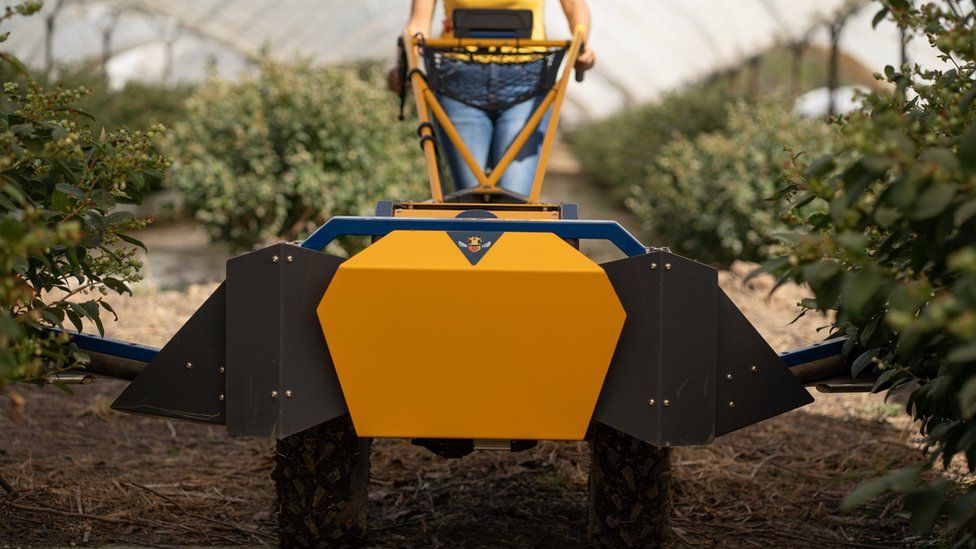-

-
-
Loading

Loading

Thai Sade, the founder of tech firm BloomX, has developed a method of mechanically pollinating crops as an alternative to relying solely on bees. Three-quarters of crops grown worldwide for human consumption are dependent on pollinators, with bees being the main contributors. However, bee populations are declining due to factors such as climate change, habitat loss, and pesticide use. BloomX's technology, currently focused on blueberries and avocados, uses mechanical arms to vibrate and imitate the pollen-releasing actions of bumble bees. The company's products, Robee and Crossbee, are controlled by an AI-based software system and have GPS tools for precise treatment. Artificial pollination can help address the shortage of honeybees caused by the almond industry in California, and other companies like Edete are also working on similar solutions. While some argue that artificial pollination is unnecessary if bee health is prioritized, BloomX and Edete believe that it can alleviate pressure on bees, allowing them to pollinate naturally while meeting the demand for fruits and vegetables.